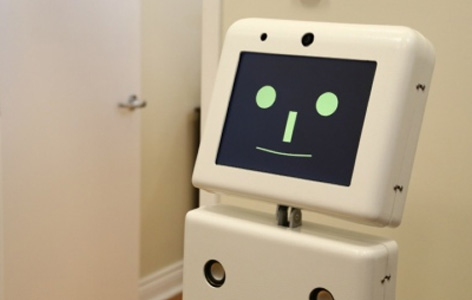
As Canada's population ages, an increasing number of individuals will be afflicted with dementia and Alzheimer disease (AD). Canada's health care system currently lacks the resources to provide long-term care for this growing population. A potential solution to this problem is the development of technologies to enable older adults to maintain their independence while they age at home.
One example of this approach, which is being led by TRI researchers, is the development of mobile robotic systems that help individuals complete daily tasks. But designing robots that are able to interact with those with AD remains a challenge because these individuals often have difficulty speaking clearly—a symptom that worsens as the disease progresses.
TRI Scientists Drs. Frank Rudzicz and Alex Mihailidis ran a series of experiments to identify patterns of communication between robots and people with AD as the latter performed daily tasks. By analyzing the behaviour of participants, the research team found that 40% of the interactions with the robot would cease because the participant would simply begin to ignore the robot. This often occurred after participants showed signs of confusion or misunderstanding.
Explains Dr. Rudzicz, "Our study has pinpointed the behaviours that influence communication breakdown between robots and adults with AD. We are now trying to develop speech recognition systems that automatically detect these behaviours to facilitate more successful interactions between robots and individuals who have AD."
This work was supported by the Canadian Institutes of Health Research, the Natural Sciences and Engineering Research Council of Canada, the Nuance Foundation and the Toronto Rehab Foundation.
Speech interaction with personal assistive robots supporting aging at home for individuals with Alzheimer's disease. Rudzicz F, Wang R, Begum M, Mihailidis A. ACM Transactions on Accessible Computing. 2015 May. [Pubmed abstract]




